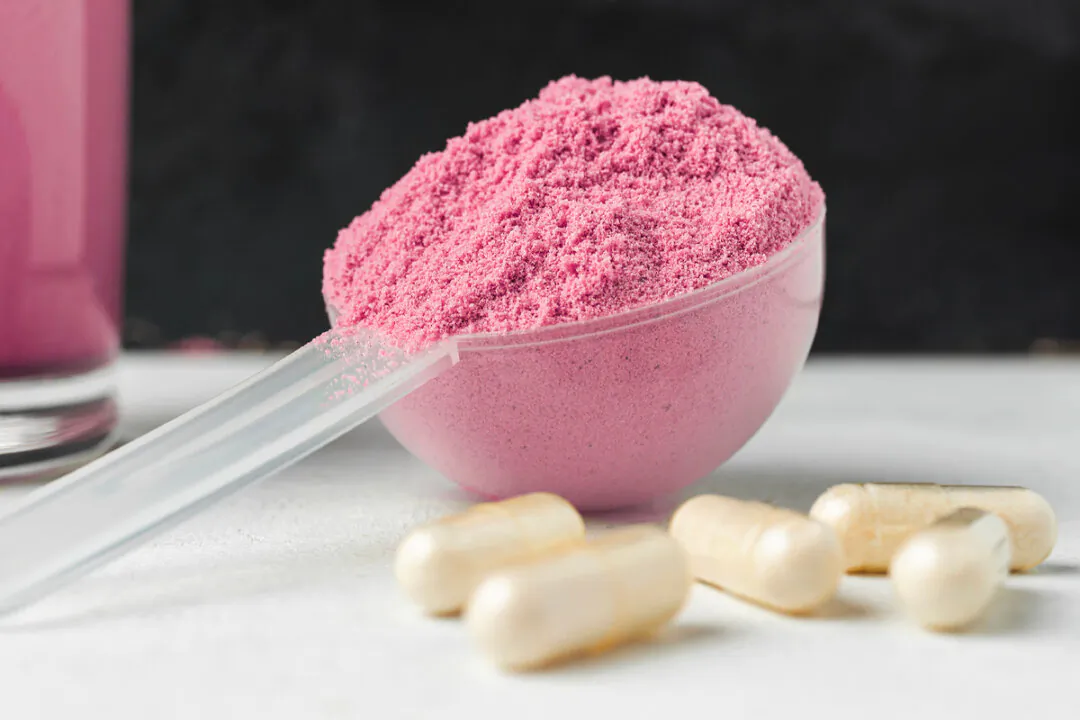In sports, victories and personal bests often come down to the smallest of margins. While training and mental strength help build a solid foundation, optimized nutrition can give you that extra edge.
Whether a teenager chasing a faster 5K or a senior looking to boost walking stamina, research shows that four natural supplements have the potential to improve endurance.
1. Beetroot
Dating to ancient Babylon, beets have long been prized for their unique flavor and health benefits. Research shows one of those benefits is boosting endurance.
“Beetroot is one of the best, most effective supplements for increasing endurance,” Jose Antonio, who has a doctorate in physiology and is a professor of human health and performance at Nova Southeastern University, told The Epoch Times.
It’s beetroot’s capacity to improve blood flow by enhancing oxygen transfer that makes it advantageous, he said.
Beetroot juice increases nitric oxide, widening blood vessels and enhancing circulation. This allows more oxygen to reach the muscles. Beetroot also promotes more productive mitochondria, according to a systematic review published in Nutrients. Mitochondria play a central role in endurance by breaking down carbohydrates and fats obtained from food into adenosine triphosphate (ATP), which is used by the muscles for energy.
In a double-blind, randomized study, beetroot juice allowed elite runners in their mid-20s to endure longer before tiring. The authors noted that after 15 days of beetroot supplementation, runners experienced “substantial improvements” in delaying exhaustion.
Beetroot isn’t just for elite athletes; it can benefit recreationally active people. Research shows that it can increase running speed and postpone fatigue, while a double-blind study on 32 soccer players found that beetroot supplementation lowered heart rate and improved high-intensity training by elevating nitric oxide levels.
In older adults, beetroot juice has been shown to improve blood pressure and enhance blood and immune cell circulation, according to a randomized study published in Nutrients.
Mr. Antonio recommends beetroot chews, although supplements also are available as juice or powder.
2. Caffeine
Research suggests that for those seeking to boost stamina, caffeine could be the key ingredient that helps them reach their performance goals.
“Caffeine has long been used by endurance athletes, and there’s good reason for it,” Mr. Antonio said.
Caffeine enhances physical performance by blocking adenosine, a neurotransmitter, and increasing stimulating neurotransmitters such as dopamine, enhancing nerve impulses and reducing pain as a result.
A 2018 double-blind study found that coffee one hour before a one-mile run improved performance by 1.9 percent versus decaf. A 2022 meta-analysis also found caffeine meaningfully extended time to exhaustion in runs. Similar benefits were observed in cyclists and soccer players.
While caffeine provides a powerful physiological effect, there’s some evidence that its benefits may be attributed to its psychological effects.
A 2022 study gave recreational runners caffeine pills, placebos believed to be caffeinated, or nothing. The placebo group performed as well as those getting caffeine, showing a “placebo effect.”
“Believing to have ingested caffeine improved performance to a similar extent than actually receiving caffeine,” the authors wrote.
3. Beta-Alanine
Beta-alanine is a nonessential amino acid naturally produced in the body and found in meat and seafood. First verified for endurance benefits in 2007, it’s relatively new compared to ancient aids such as beetroot and caffeine.
Supplementing with beta-alanine enables our muscles to perform at a higher level by delaying the onset of lactic acid, according to Mr. Antonio. During exercise such as running or weightlifting, lactate buildup in the muscles causes fatigue and limits endurance. Supplementing with beta-alanine may reduce lactate accumulation, enabling people to exercise harder for longer.
A meta-analysis of 15 studies found that beta-alanine improved athletic output by 2.85 percent on average.
However, unlike beetroot or caffeine, beta-alanine’s benefits are seen in training ranging from one to four minutes, making it ideal for interval sessions when lactic acid floods muscles, Mr. Antonio said.
Although more a training booster than a performance enhancer, according to Mr. Antonio, improved training dictates better outcomes.
4. Branched-Chain Amino Acids
Excessive soreness from exercise can deter many from pursuing a physically active lifestyle. However, supplementing with branched-chain amino acids (BCAA) may help offset undue sore muscles, according to a 2021 review published in the journal Amino Acids.
BCAAs are best known for reducing inflammatory muscle markers that cause soreness, according to Mr. Antonio. A 2021 meta-analysis of nine studies found that BCAAs consistently decreased muscle damage and soreness.
For older adults, BCAAs offer more benefits, including improved strength and muscle mass, according to a 2022 meta-analysis published in the European Journal of Nutrition.
BCAAs may improve functional muscle mass and strength in older people. BCAAs coupled with exercise can be particularly effective in combating age-related muscle degeneration.



